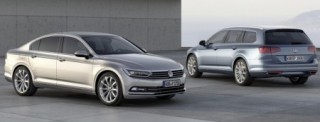In this special feature, leading international Welsh economist Prof Garel Rhys looks at what the introduction of the new Vauxhall Astra will mean for the UK and the rival models and brands.
 Britain’s sleeping giant in the automotive industry is about to wake up.
Britain’s sleeping giant in the automotive industry is about to wake up.
Of the seven volume brands making cars in the UK (Nissan, Toyota, Honda, MINI, Land Rover, Jaguar, Vauxhall), it is too easy to dismiss as an also ran Vauxhall’s contribution at Ellesmere Port.
Compared to Nissan’s 2014 output of 500,238 cars from Sunderland, Ellesmere Port’s production of 73,466 was poor. This left Vauxhall in last place, even behind Jaguar’s 78,566. However, this does not reflect Vauxhall’s true position.
In 2014, Vauxhall’s Luton Plant made 43,649 medium vans. This was 62% of UK commercial vehicle output and the only other significant volume came from Land Rover’s 11,299 and DAF’s Paccar making 11,869, while Dennis was a significant player in the bus sector.
In 2014 and 2015, Vauxhall’s van and car output respectively was disrupted by new model introductions. However, in 2016 with the new Astra bedded-down, production could approach 150,000 units.
In 2014, Luton made 43,649 units but 2015 could see output of circa 58,000, close to the plant’s manned capacity of 60,000 a year.
The prospects for the van are good as the product has been well received and as the only British-made medium van many firms have adjudged it good public relations to buy it. If production limits at Renault, the engine supplier, can be overcome then a third shift could be introduced.
The new Astra should revitalise Ellesmere Port and there are two reasons why an annual production volume of 150,000 should be attainable. Firstly, it and Gliwice in Poland are responsible for the five-door Astra hence all the European demand for the model will be directed at the two plants. Secondly, Ellesmere Port will be responsible for the Astra Sport Tourer or estate version. This will reinforce the products’ appeal in what is a very competitive light medium sector of the market.
In 2005, Ellesmere Port made 189,000 cars and vans but this was on a four-shift basis.
As around 50% of the cars’ output is geared for the home market this would mean that in all probability Vauxhall would displace Ford and be the brand leader in the UK for the first time. The Volkswagen Group would remain “group” leader.
As firms like Renault and Fiat, and all the Japanese other than Nissan and Toyota, have very small market shares already this extra pressure from Vauxhall will put them in a parlous state.
It is worth noting that Ford’s current market share is the lowest since the early 1930s, reflecting the fracturing of the market it has dominated as a brand since 1954 when it regained the lead it had enjoyed between 1911 and 1921 and before Austin slashed prices to head the market.
If one takes the three highest market share-holders in 1985 BL, Ford and Vauxhall had 60.8%. In 2015, Ford, Vauxhall and the Volkswagen Group had 45%.
Ford took market leadership away from the BL conglomerate in 1977 but in recent years the Volkswagen Group has dominated. If Vauxhall do snatch the top spot in the market it will be historically momentous.
Vauxhall’s total UK production could exceed 210,000 vehicles in the near future. This would put them in third place in terms of total production behind Nissan and JLR.
The last eight years in the UK have seen most attention directed at Nissan, Jaguar Land Rover and the likes of Bentley and Rolls-Royce, and rightly so. Nevertheless, Vauxhall remains a significant vehicle maker and is the volume base of UK commercial vehicle manufacturing. The next few years should see a dramatic increase in Vauxhall car and commercial vehicle output. This is particularly significant for Wales.
Implications for Wales
Vauxhall has four important effects on the Welsh economy:
- Of the 2,000 strong workforce at Ellesmere Port, around 460 live in Wales. The Welsh Automotive Forum has circa 126 member companies of which only half a dozen employ more than the Vauxhall workers crossing the border every day, so Vauxhall is one of the largest employers of Welsh labour in the automotive sector. As such it could be regarded as an honorary Welsh company.
- The above describes the present position but Vauxhall could have an impact on the growth of the numbers employed and other inputs. An output of 150,000 at Ellesmere Port is the maximum on two-shifts but Vauxhall is looking to increase this to at least 200,000 a year and this will require an extra shift and the implications for Welsh employment are obvious.
- Extra production at both Luton and Ellesmere Port will require input of additional components, systems, services and materials, so opportunities for the suppliers will increase. It will be down to them to win as much business as they can. The Welsh automotive sector accounts for 11% by value of total UK component production and this should be the target for Welsh suppliers – 11% of the extra business coming on stream.
- Wales is closely associated with Ellesmere Port in skills provision through Welsh colleges so a growing Vauxhall workforce would have implications for the capacity of skills provision in North East Wales with a knock on effect for teaching staff numbers as well.
 © Professor Garel Rhys CBE, Professor Emeritus Cardiff University Business School & Chairman Welsh Automotive Forum.
© Professor Garel Rhys CBE, Professor Emeritus Cardiff University Business School & Chairman Welsh Automotive Forum.


